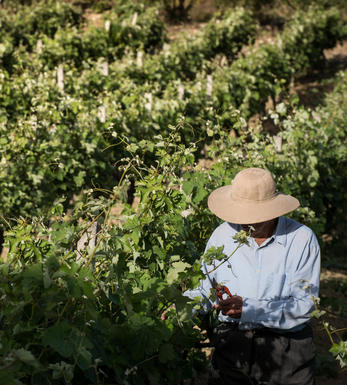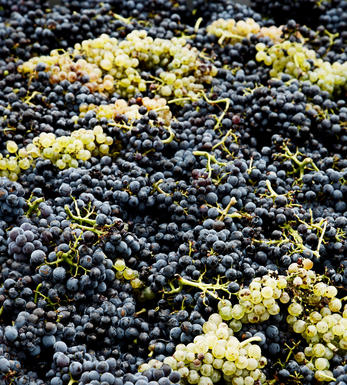
About this WINE

Domaine Sigalas
The long winemaking tradition of Santorini island coupled with modern practices and state-of-the-art technology are the founding principles of Domaine Sigalas, one of the most highly-appreciated Santorini wineries.
The vineyards are situated at the fields of Oia village, at the northern part of the island. Mild winters, cool summers and the island's volcanic soil create a unique ecosystem, favouring the production of high quality wines, of distinct character. The most versatile grape variety of the Mediterranean region, the Assirtiko (or Assyrtiko) of Santorini, as well as other indigenous varieties - Aidani, Athiri, Mandilaria, Mavrotragano - are cultivated, giving superior quality wines, which have gained many international distinctions..
Sigalas farms its Mavrotragano at a density of 6,000 vines per hectare, trellised and with an average age of just 7 years. Irrigation on this arid island is permitted, administered post-veraison, with the bunches limited to four per vine. Average yields are in the region of just 20 – 25 hectolitres per hectare. As for vinification, Sigalas avoid the use of pumps at all phases, favouring a more protective approach. Cold maceration last for approximately one week and the resulting fermentation takes place in used French oak barrels. In achieving physiological (phenolic) ripeness Mavrotragano builds sugars and, as a result, may reach as much as 15% alcohol by volume. This grape has an affinity for new oak, in which it matures (an element of which are new barrels) for some 18 months.

Assyrtiko
Assyrtiko (aka Assirtiko) [pronounce: A seer' tee ko] is one of Greece's signature white wine grape varieties, used for both dry and sweet wine. It reaches its apogee in the island of Santorini (where it was first planted – currently 70% of the island’s vineyard area). It yields a bone-dry, steely wine that has deliciously concentrated citrus aromas mixed with an earthy, mineral aftertaste evocative of the volcanic soil of Santorini.
Uniquely, the vines are cultivated in low basket shaped crowns, pinned to the ground, for protection from the often fierce winds dominating the climate in Santorini. Coming off the sea, the nocturnal fog brings much needed water to the vines during the dry, hot summer season and this, coupled with the cooling northerly winds provide the right growing conditions for the grape to thrive.
Assyrtiko is highly resistant to most grape diseases and this partly explains why it been widely re-planted throughout appellations in Greece, such as in Paros, Naxos, Crete, and in smaller quantities in Attica, Drama, Epanomi, Halkidiki and Hromitsa, Drama.
Owing to its pronounced mineral profile, Assyrtiko stands up well for blending with grapes such as Sauvignon blanc, Sémillon and the indigenous Greek white grape Malagousia.
These are wines to be enjoyed young or aged; the ideal complement to delicate dishes, fish, seafood and, surprisingly, even grilled meat dishes.
More famously, Assyrtiko is paired with the aromatic Aidani and Athiri white grapes for the production of a distinctive, naturally sweet wine called Vinsanto (derivative of the name Santorini), known since the Byzantine times.
Vinsanto can be naturally sweet or fortified and must be barrel-aged for a minimum of 2 years. The opulently sweet Vinsantos display a deep amber colour, a thrilling nose of crème brûlée’, chocolate and dried apricots and a palate of dates and dried figs.



Buying options
Add to wishlist
Description
Assyrtiko is one of the Mediterranean’s greatest white grape varietals, and nowhere does it perform better than the plain of Oia at the northern tip of Santorini, where Domaine Sigalas is located. Frequent mists combine with a brisk wind to provide relief to the vines (and those who tend them so meticulously) during the hot growing season. The unique ‘giristi’ pruning system shelters the berries from buffeting when the wind turns from friend to foe. The result, in favourable vintages such as 2015, is immaculately healthy, ripe grapes which retain their assertive acidity from vine to glass. The sandy soil here is composed of volcanic ash and pumice. The extent to which this terroir accounts for the wine’s mineral character is open to debate, but the purity of fruit, freshness and complexity it exhibits are not. There’s a slight salinity to the finish that demands another sip. A superb accompaniment to fritto misto or something grander – lobster perhaps.
Will Heslop - Buyer
wine at a glance
Delivery and quality guarantee